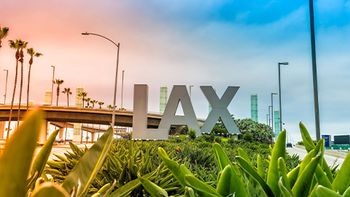
FDA Unveils Proposed Rulemaking for Regulating Pharmaceutical Wholesale Distributors and 3PLs
Action offers the fulfillment of a critical part of the Drug Supply Chain Security Act (DSCSA)
A long-awaited part of DSCSA, which was passed by the US Congress in 2013, is new licensing obligations for of wholesale drug distributors (WDDs) and of third-party logistics providers (3PLs) that handle pharmaceuticals. The proposed rule, published in the Federal Register on Feb. 4, is now available for commentary period that will last until June 6.
Although the news can be read as a slow-moving bureaucracy—FDA—completing an overdue regulatory obligation, its implications are wide-reaching. Heretofore, FDA mostly deferred to states for regulating wholesale distributors; and 3PLs were all but invisible to the agency. In making the announcement, FDA is being very explicit that it is setting both a “floor” and a “ceiling” for licensing these organizations. The new rule “preempts States and localities from establishing or continuing requirements for 3PL or WDD licensure that are different from the national standards and requirements.” Thus, hundreds of distributors and probably an equal number of 3PLs will now deal with FDA.
This preemption is not a surprise; according to FDA’s interpretation, it was written into the original 2013 legislation. The logic has been that DSCSA sets up a national framework for safe drug distribution; wholesaler and 3PL practices are inextricably involved in that, especially when it comes to sharing transaction information and tracing drugs’ paths from manufacturer to pharmacy. For the most part, however, pharmacies are not involved in the new rules; an existing “5 percent rule” allows de minimis transactions between pharmacies; beyond that level, a pharmacy will have to register as a distributor. (Logic would dictate that end-to-end safe distribution should extend to delivery to patients, but there is a long history, continued in DSCSA, of a hands-off policy between pharmacies and FDA.)
In practice, FDA will now register and issue licenses for WDDs and 3PLs, and ensure that safe practices are documented and recorded. These would include “standards for the storage and handling of prescription drugs, including facility requirements and security, inventory management, and equipment maintenance;” another feature is to allow for onsite inspections. A license would have a nominal three-year duration before renewal. Interestingly, the proposed rule specifies that FDA can select “approved organizations” to conduct the inspections and licensing on its behalf; the rule also specifies how FDA will evaluate such “AOs.” Surety bonds of either $25,000 or $100,000 (depending on the size of the WDD or 3PL) will need to be posted.
Preliminary reaction from industry is positive: “While we are continuing to analyze the proposed standards, HDA is pleased that FDA has recognized the need for a uniform licensing framework across all 50 states and has reinforced the DSCSA’s elimination of the patchwork of state requirements that currently exists,” said Chip Davis, Healthcare Distribution Alliance CEO.
An FDA announcement, with links to the new proposed rule and related documents, is available at
Newsletter
Stay ahead in the life sciences industry with Pharmaceutical Commerce, the latest news, trends, and strategies in drug distribution, commercialization, and market access.



